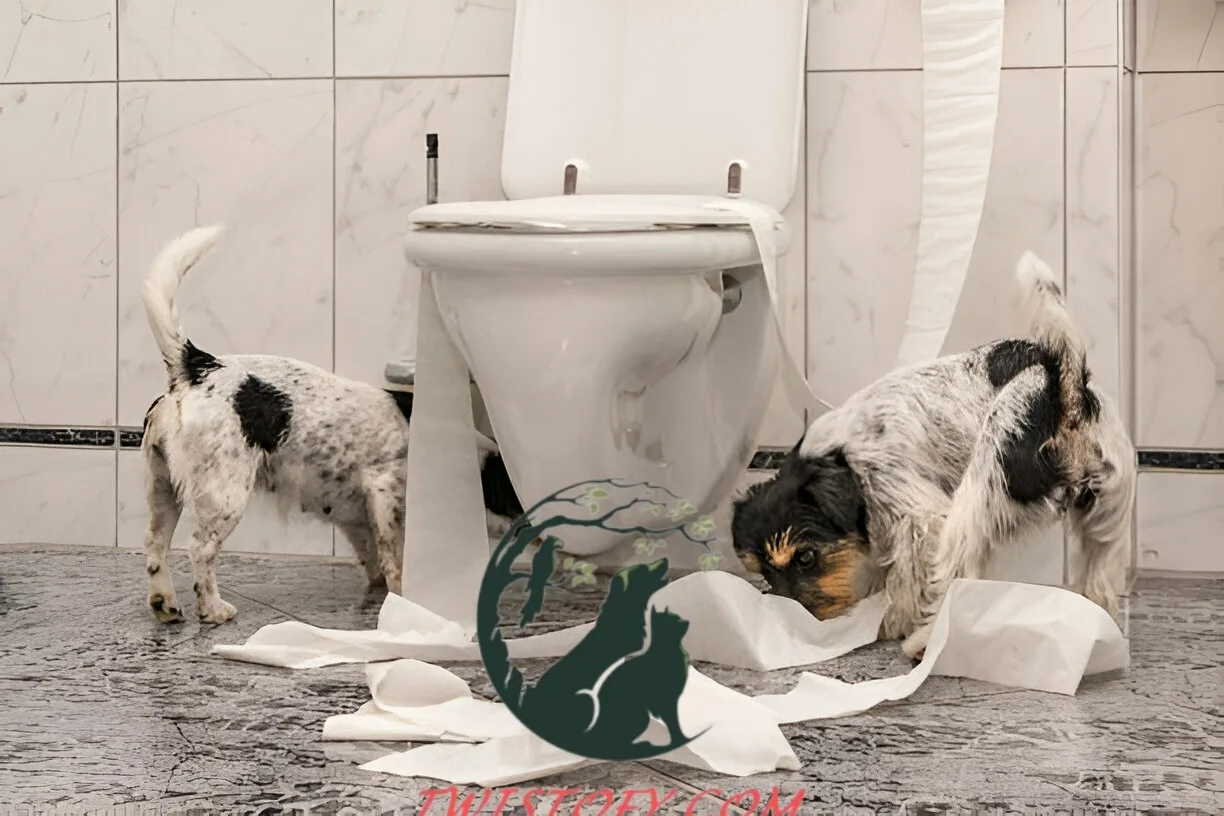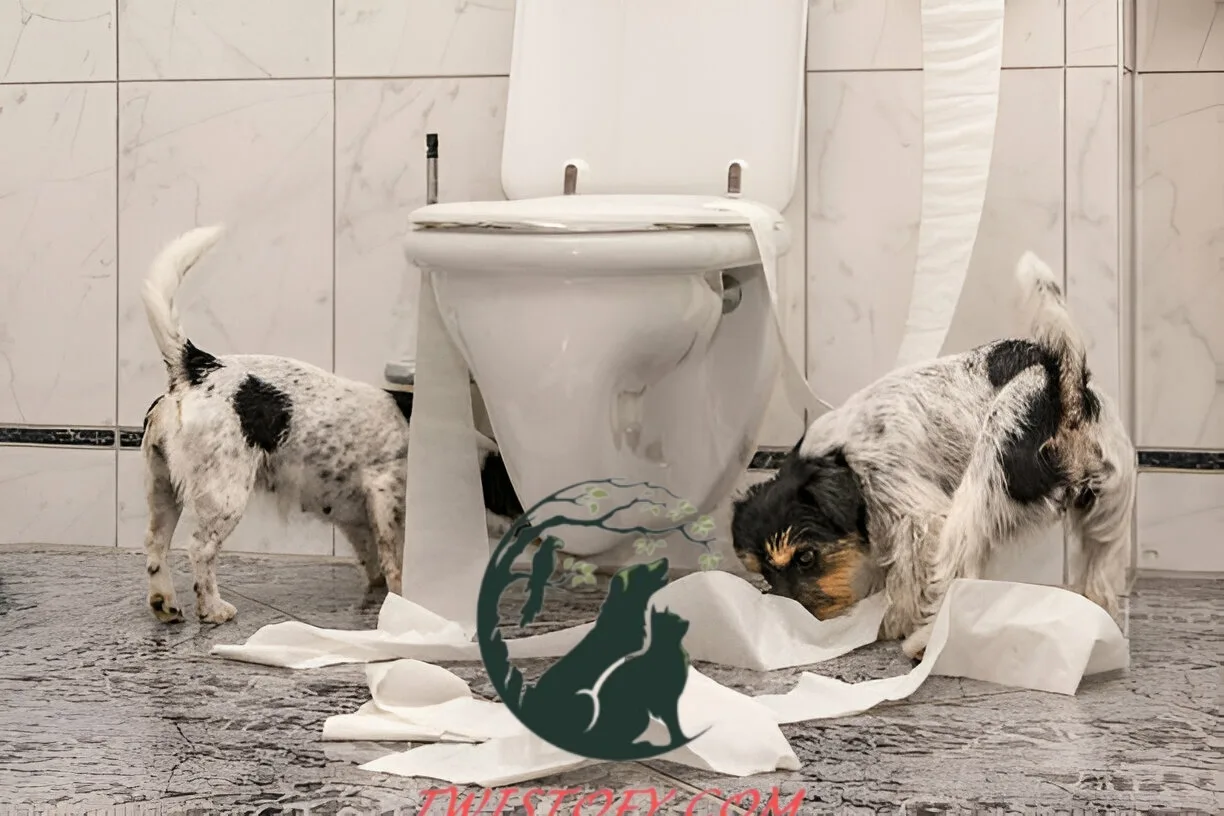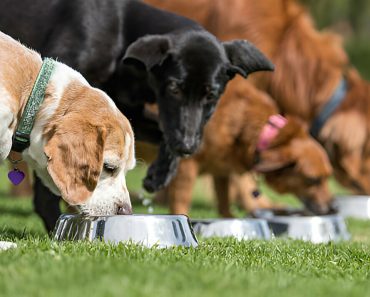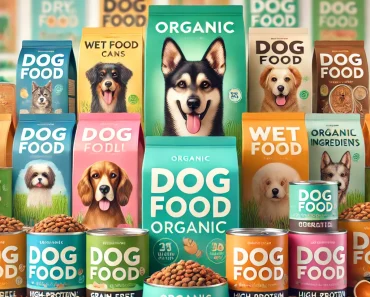
Constipation in dogs
Constipation in dogs can be a concerning issue for pet owners, leading to discomfort and potential health complications. In this comprehensive guide, we’ll discuss the causes, symptoms, and treatment options for canine constipation, along with practical tips for promoting healthy digestion in your furry friend.
Understanding Constipation in dogs :
-
- Constipation in dogs occurs when a dog has difficulty passing stool, resulting in infrequent bowel movements or the passage of hard, dry feces.
- Common causes of constipation in dogs include inadequate hydration, dietary indiscretions, lack of fiber in the diet, underlying medical conditions, and certain medications.
Recognizing the Symptoms of Constipation in dogs:
-
- Signs of constipation in dogs may include straining to defecate, passing small amounts of feces or no feces at all, abdominal discomfort or bloating, and lethargy.
- It’s essential to monitor your dog’s bowel habits and seek veterinary attention if you notice any changes or concerning symptoms.
Diagnostic Evaluation by a Veterinarian:
-
- If your dog is constipated, it’s crucial to consult with a veterinarian for a proper diagnosis and treatment plan.
- The veterinarian may perform a physical examination, fecal analysis, blood tests, and imaging studies to identify the underlying cause of constipation in dogs and rule out more serious conditions.
Treatment Options for Constipation in dogs:
-
- Treatment for constipation in dogs may vary depending on the underlying cause and severity of the condition.
- Options may include dietary changes, increased hydration, fiber supplementation, laxatives or stool softeners, enemas, and medications to promote bowel motility.
Preventive Measures for Promoting Digestive Health:
-
- Preventing constipation in dogs involves promoting overall digestive health through proper nutrition, hydration, and lifestyle management.
- Ensure your dog has access to fresh, clean water at all times and provide a balanced diet rich in fiber from sources like fruits, vegetables, and whole grains.
Hydration is Key:
-
- Adequate hydration is essential for maintaining normal bowel function and preventing Constipation in dogs.
- Encourage your dog to drink plenty of water throughout the day, especially during hot weather or after exercise.
Increasing Dietary Fiber:
-
- Adding fiber to your dog’s diet can help promote regular bowel movements and prevent Constipation in dogs.
- Consider incorporating fiber-rich foods such as pumpkin, sweet potatoes, green beans, and psyllium husk into your dog’s meals.
Regular Exercise and Activity:
-
- Regular exercise is beneficial for promoting overall health and maintaining normal bowel function in dogs.
- Ensure your dog gets daily exercise and opportunities for physical activity to help stimulate bowel motility and prevent Constipation in dogs.
Consultation with a Veterinary Nutritionist:
-
- If you’re unsure about the best diet for your constipated dog, consider consulting with a veterinary nutritionist for personalized dietary recommendations.
- A veterinary nutritionist can help formulate a balanced, fiber-rich diet tailored to your dog’s individual needs and preferences.
Prompt veterinary attention:
-
- Constipation in dogs can be uncomfortable and distressing for dogs, but with prompt veterinary attention and appropriate management, most cases can be resolved successfully.
- By understanding the causes, symptoms, and treatment options for canine Constipation , pet owners can take proactive steps to promote digestive health and ensure their furry companions lead happy, comfortable lives.
Remember, if your dog is constipated, it’s essential to seek veterinary care promptly for an accurate diagnosis and treatment plan. With proper management and preventive measures, you can help keep your dog’s digestive system healthy and functioning smoothly.
Regular Veterinary Check-ups:
-
- Regular veterinary check-ups are crucial for monitoring your dog’s overall health, including their digestive function.
- During routine exams, your veterinarian can assess your dog’s weight, body condition, and gastrointestinal health, and discuss any concerns or changes in bowel habits.
Potential Complications of Untreated Constipation:

Constipation in dogs
-
- If left untreated, constipation in dogs can lead to potentially serious complications, including rectal prolapse, megacolon, and fecal impaction.
- These complications can be painful and may require invasive interventions such as surgery to resolve.
Managing Chronic Constipation in Dogs:
-
- Some dogs may experience chronic or recurrent constipation, requiring long-term management strategies.
- Chronic constipation may be due to underlying medical conditions such as megacolon, pelvic injury, or neurological disorders, which require specialized treatment and ongoing monitoring.
Lifestyle Modifications for Constipated Dogs:
-
- In addition to dietary changes and hydration, lifestyle modifications can help manage constipation in dogs.
- Providing regular opportunities for exercise, maintaining a consistent bathroom schedule, and reducing stress and anxiety can all contribute to improved bowel function.
Monitoring Response to Treatment:
-
- After initiating treatment for constipation, it’s essential to monitor your dog’s response and adjust the treatment plan as needed.
- Keep track of your dog’s bowel movements, appetite, and overall well-being, and report any changes or concerns to your veterinarian promptly.
Collaborating with Your Veterinarian:
-
- Managing constipation in dogs often requires collaboration between pet owners and veterinarians.
- Work closely with your veterinarian to develop a comprehensive treatment plan tailored to your dog’s individual needs, and follow their recommendations for monitoring and follow-up care.
Exploring Alternative Therapies:
-
- In some cases, alternative therapies such as acupuncture, massage, or physical therapy may complement traditional treatment approaches for constipation in dogs.
- Discuss these options with your veterinarian to determine if they may be appropriate for your dog’s specific situation.
Maintaining a Positive Outlook:
-
- Dealing with constipation in dogs can be challenging, but with patience, diligence, and veterinary guidance, most cases can be managed successfully.
- Stay positive and proactive in addressing your dog’s digestive health needs, and remember that your veterinarian is there to support you every step of the way.
By incorporating these additional considerations into your approach to managing constipation in dogs, you can help ensure that your furry friend receives the comprehensive care and support they need to maintain optimal digestive health.
Practical Tips for Relieving Mild Constipation:
-
- If your dog is experiencing mild constipation, there are several home remedies you can try to help alleviate their discomfort.
- Encourage your dog to drink plenty of water to stay hydrated, as dehydration can exacerbate constipation.
- Increase your dog’s fiber intake by adding canned pumpkin or plain, unsweetened yogurt to their meals, both of which can help soften stool and promote bowel movements.
- Take your dog for regular walks and provide opportunities for exercise, as physical activity can stimulate bowel motility and encourage regular bowel movements.
The Role of Probiotics in Digestive Health:
-
- Probiotics are beneficial bacteria that can help promote a healthy balance of gut flora and support digestive function in dogs.
- Adding a probiotic supplement to your dog’s diet may help regulate bowel movements and improve overall gastrointestinal health.
- Look for high-quality probiotic supplements specifically formulated for dogs and follow the manufacturer’s recommended dosage instructions.
Dietary Supplements for Digestive Support:
-
- In addition to probiotics, certain dietary supplements may provide added support for digestive health in dogs.
- Digestive enzymes can help break down food more effectively and aid in nutrient absorption, while fiber supplements such as psyllium husk or bran can help soften stool and promote regular bowel movements.
- Talk to your veterinarian before starting your dog on any new dietary supplements to ensure they are safe and appropriate for your dog’s specific needs.
The Importance of Gradual Changes:
-
- When introducing dietary changes or supplements to your dog’s regimen, it’s essential to do so gradually to avoid digestive upset.
- Start by introducing small amounts of the new food or supplement and gradually increase the dosage over several days to weeks, monitoring your dog’s response closely.
Seeking Veterinary Guidance:
-
- If your dog’s constipation persists or worsens despite home remedies and dietary changes, it’s essential to seek veterinary attention promptly.
- Your veterinarian can perform a thorough evaluation to identify any underlying medical conditions contributing to your dog’s constipation and recommend appropriate treatment options.
Promoting Long-Term Digestive Health:
-
- While addressing acute episodes of constipation is essential, it’s also crucial to focus on promoting long-term digestive health and preventing future episodes.
- Providing a balanced diet, adequate hydration, regular exercise, and appropriate dietary supplements can all contribute to maintaining optimal digestive function in dogs
-
- Constipation can be uncomfortable for dogs, but with prompt intervention, home remedies, and veterinary guidance, most cases can be successfully managed.
- By taking proactive steps to promote digestive health, including incorporating probiotics, dietary supplements, and practical tips for relieving constipation, you can help ensure that your furry friend enjoys a happy, comfortable life free from gastrointestinal discomfort.
By implementing these practical tips and home remedies, pet owners can take an active role in supporting their dog’s digestive health and well-being. Remember, every dog is unique, so it’s essential to tailor your approach to meet your dog’s individual needs and consult with your veterinarian for personalized guidance and recommendations.
The Role of Stress and Anxiety:
-
- Stress and anxiety can have a significant impact on a dog’s digestive health and may contribute to constipation.
- Changes in routine, loud noises, separation from owners, and unfamiliar environments can all trigger stress in dogs and lead to gastrointestinal issues.
- Minimizing stressors and providing a calm, supportive environment can help alleviate constipation and promote overall well-being in dogs.
Environmental Factors and Lifestyle:
-
- Environmental factors such as temperature, humidity, and access to outdoor spaces can influence a dog’s bowel habits and digestive function.
- Ensure your dog has access to a comfortable living environment with adequate opportunities for exercise, exploration, and elimination.
The Importance of a Balanced Diet:
-
- A balanced diet is essential for maintaining optimal digestive health in dogs and preventing constipation.
- Ensure your dog’s diet is rich in high-quality protein, healthy fats, vitamins, and minerals, and provides adequate fiber from sources like fruits, vegetables, and whole grains.
Choosing the Right Dog Food:
-
- When selecting a dog food for your furry friend, opt for high-quality, nutritionally complete options that are formulated to meet your dog’s specific needs.
- Look for dog foods that list real meat as the first ingredient, avoid artificial additives and fillers, and are manufactured by reputable brands with a history of quality and safety.
The Importance of Regular Veterinary Care:
-
- Regular veterinary check-ups are essential for maintaining your dog’s overall health, including their digestive function.
- Schedule annual wellness exams with your veterinarian to monitor your dog’s health, discuss any concerns or changes in bowel habits, and ensure they receive appropriate preventive care.
Monitoring Bowel Habits and Symptoms:
-
- Pay close attention to your dog’s bowel habits and monitor for any changes or abnormalities, such as straining, difficulty defecating, or changes in stool consistency.
- Keep a journal of your dog’s bowel movements, appetite, and overall well-being, and share this information with your veterinarian during wellness exams or veterinary consultations.
Educating Yourself About Canine Health:
-
- Educating yourself about common health issues affecting dogs, including constipation, can empower you to make informed decisions about your dog’s care and well-being.
- Stay informed about the latest developments in veterinary medicine, dietary guidelines, and preventive care recommendations to provide the best possible care for your furry friend.
Hydration and Bowel Health:
-
- Adequate hydration is crucial for maintaining proper bowel function in dogs and preventing constipation.
- Ensure your dog has access to fresh, clean water at all times, and encourage them to drink regularly throughout the day, especially during hot weather or periods of increased activity.
Potential Side Effects of Medications:
-
- Certain medications, including pain relievers, antibiotics, and other prescription drugs, can have side effects that affect digestive health in dogs.
- If your dog is taking medication and experiencing constipation as a side effect, consult with your veterinarian for guidance on managing their symptoms and adjusting their treatment plan if necessary.
Behavioral Factors and Bowel Movements:
-
- Behavioral factors such as anxiety, stress, and changes in routine can influence a dog’s bowel habits and digestive function.
- Pay attention to your dog’s behavior and environment, and take steps to minimize stressors and provide a calm, supportive atmosphere to promote regular bowel movements.
The Importance of Regular Exercise:
-
- Regular exercise is essential for maintaining optimal digestive health and promoting regular bowel movements in dogs.
- Take your dog for daily walks, provide opportunities for play and physical activity, and engage in interactive games and training sessions to keep them mentally and physically stimulated.
Dietary Considerations for Digestive Health:

Constipation in dogs
-
- In addition to providing a balanced diet, certain dietary supplements may help support digestive health and prevent constipation in dogs.
- Consider incorporating probiotics, prebiotics, and digestive enzymes into your dog’s diet to promote a healthy balance of gut flora and improve overall digestive function.
Avoiding Dietary Indiscretions:
-
- Be mindful of your dog’s dietary habits and avoid feeding them foods that may be difficult to digest or cause gastrointestinal upset.
- Avoid giving your dog table scraps, fatty or spicy foods, bones, and other potential sources of digestive irritation, and stick to a consistent feeding schedule and diet to help prevent constipation.
Seeking Veterinary Advice:
-
- If your dog experiences recurrent or severe constipation despite home remedies and dietary changes, it’s essential to seek veterinary advice promptly.
- Your veterinarian can perform a thorough evaluation to identify any underlying medical conditions contributing to your dog’s constipation and recommend appropriate treatment options.
Monitoring Response to Treatment:
-
- After initiating treatment for constipation, continue to monitor your dog’s symptoms and response to treatment closely.
- Keep track of your dog’s bowel movements, appetite, and overall well-being, and report any changes or concerns to your veterinarian for further guidance and adjustments to their treatment plan.
By considering these additional factors and taking proactive steps to promote digestive health, pet owners can help prevent constipation and support their dog’s overall well-being. Remember, maintaining optimal digestive function is essential for your dog’s health and happiness, so prioritize their hydration, exercise, dietary needs, and emotional well-being to ensure they lead a happy, comfortable life.






